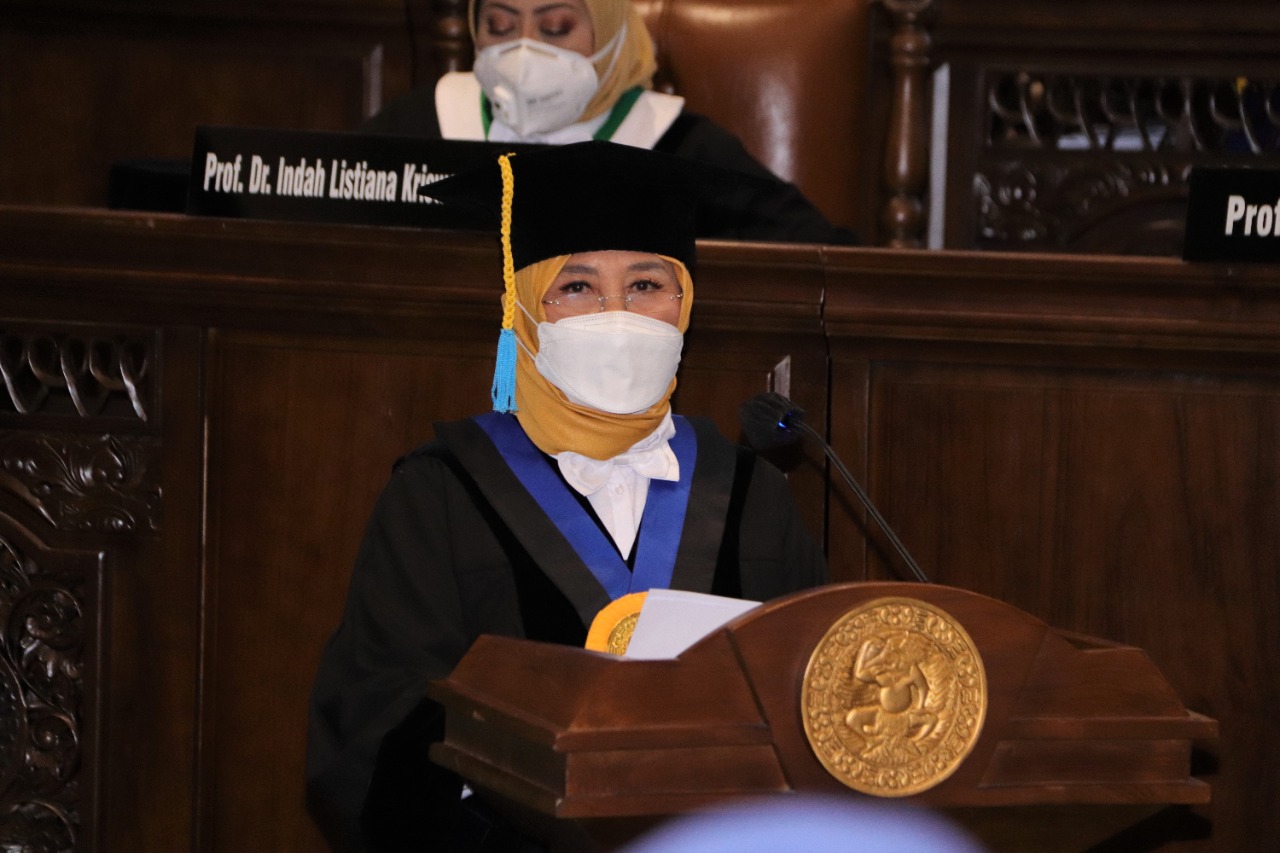UNAIR NEWS – Animal Physiologist Prof. Dr. Alfiah Hayati, M.Kes., was inaugurated as a professor on Wednesday, December 8, 2021. Having served at UNAIR for more than 30 years, the professor conducted research on fish feed supplement innovation. Her innovation covers how the supplement can make fish safe for consumption even though it has been contaminated with microplastic pollution. This environmentally friendly concept is intended to contribute to the realization of the sustainable development movement.
Prof. Alfiah said that polluted water can affect fish biota in her speech. The most dangerous type of water pollution to date is plastic waste. The former Head of FST UNAIR Biology Study Program explained that plastic in rivers can be degraded over time into particles, called microplastics.
“Almost a quarter of the fish are contaminated with microplastics. These microparticles are dangerous, as their chemical components easily bind to other pollutants such as heavy metals. If consumed, they must severely affect humans’ health,” said the UGM doctoral alumna.
Therefore, it is necessary to introduce environmentally friendly supplements in feeding fish that are likely to have been contaminated. Prof. Alfiah’s innovation revolves around probiotics in a consortium of bacteria of the lactobacillus genus. The research found that incorporating these bacteria-based supplements can neutralize heavy metal compounds in fish, increase immunity and fish nutrition, and even reduce the potential for death of the fish. In addition, feed supplements derived from herbal plants can also neutralize pollutants. For example, water spinach and tubers are plants that contain phytochemical compounds.
“The application of these two studies can be combined to effectively produce an environmentally friendly fish feed supplement, especially in the context of polluted pond water,” she said.
There are three combinations of innovations that have been laboratory-tested, according to Prof. Alfiah. The first is a combination of pellet feed and lactic acid probiotics (lactobacillus bacteria) for tolerant agents to the oxidative stress of toxic substances. The second is the combination of probiotics and Vitamin C to improve the quality of polluted water products. The third is herbal plants and medicinal plants as a source of antioxidants to neutralize toxic materials.
Author: Pradnya Wicaksana
Editor: Khefti Al Mawalia





